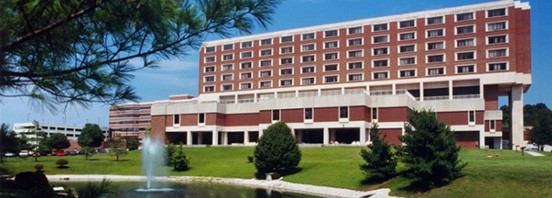
The Boston Globe, July 1, 1999
By Karen Hsu, Globe Correspondent
Troy and Brandy Ciccarelli’s story of how they managed to have a baby is becoming commonplace as the medical community makes strides in treating infertility.
After Troy, 34, was told by doctors that he had a low sperm count, the couple consented to an increasingly used fertility technique that injects sperm into the egg. The result was twins, a boy and a girl, delivered in August.
But as success stories such as the Ciccarellis’ continue to mount, a new study proves that the mutation that caused his low sperm count can be passed to the next generation, ensuring that the number of infertile males will continue to grow.
The Ciccarellis knew of this possibility before the procedure, and indeed, the couple’s son inherited the mutated gene from Troy Ciccarelli. Fertility experts say they have long warned their patients that their sons could inherit the infertility.
In a study published in the July issue of the journal Human Reproduction, Dr. David Page of the Whitehead Institute for Biomedical Research in Cambridge and Dr. Sherman Silber of the Infertility Center of St. Louis show that sons inherit the abnormal chromosome linked to male infertility.
The genetic basis for this form of infertility was established in 1995. Page and colleagues tested 89 infertile men, of whom 12 were missing a fragment of the Y chromosome known as the AZFc region. The loss of the tiny piece appears to account for infertility for about 13 percent of men who produce little or no sperm, Page said.
Considered experimental in the early 1990s, the technique of injecting a sperm into an egg, called intracytoplasmic sperm injection, or ICSI, is now the preferred method for circumventing severe male infertility. In 1996, 16,011 cycles of ICSI were attempted in the United States, and 6,098 babies were born from the technique, according to the American Society for Reproductive Medicine.
In the study published today, the authors examined four sons of three men who had a deletion in the AZFc region and had undergone ICSI. In all four cases, the sons had the same Y chromosome deletion.
“We were kind of stumped that my father didn’t have it, that the genetic thing started with me,” Ciccarelli said. Page said that for every 2,000 men, one probably carries the missing piece of the Y chromosome, but researchers do not know how the mutation happens.
About 40 percent of all couples’ infertility is due to problems in the male.
Not all male infertility can be explained by genetics, but Silber said even subtle genetic mutations might be the answer for the majority of men. Silber said at least eight other genes and as many as 30 are involved in sperm production.
“We warn all our patients there is a risk. Even the ones who don’t have this deletion, we are very careful to tell them that they may have another mutation that we will discover someday,” Silber said.
But Dr. Richard Reindollar, director of reproductive endocrinology at Beth Israel Deaconess Medical Center, said another possible cause of infertility is chromosomal translocations, which are chromosomes with fragments switched with fragments from other chromosomes.
“They could lead to other abnormalities than just infertility in the offspring,” said Reindollar, a physician with Boston IVF, one of the largest fertility clinics in the nation with more than 2,000 treatment cycles a year, of which 25 percent are ICSI.
Although reproductive technology defies what nature protected by preventing conception in the first place, most patients say they are not too worried that their sons, too, will probably have to make babies via the lab.
Silber, who was the Ciccarellis’ doctor, said couples rarely decide against the ICSI treatment after they are informed that the mutation can be passed on.
But Dr. Robert Oates, associate professor of urology at Boston Medical Center, said about 20 percent of his patients decide not to go through the therapy because they are worried the infertility problem could be genetic.
“That speaks strongly to us that we need to inform people as best as we can that infertility can have a genetic basis,” Oates said. Oates said other options include using a sperm donor, or adoption. Silber added that another option is the choice to have only daughters, because they do not carry the Y chromosome.
Troy Ciccarelli hopes that reproductive technologies will become so advanced that it will be easier to produce a child from the lab 30 years from now.
“I guess some of it was selfishness. After you have been through the wringer, you want to have a family. We are still so ecstatic,” Ciccarelli said. “Obviously, he won’t know until we think the time is right. I don’t want him to think he has the green light to do you know what and not have any worries.”
See Also:
